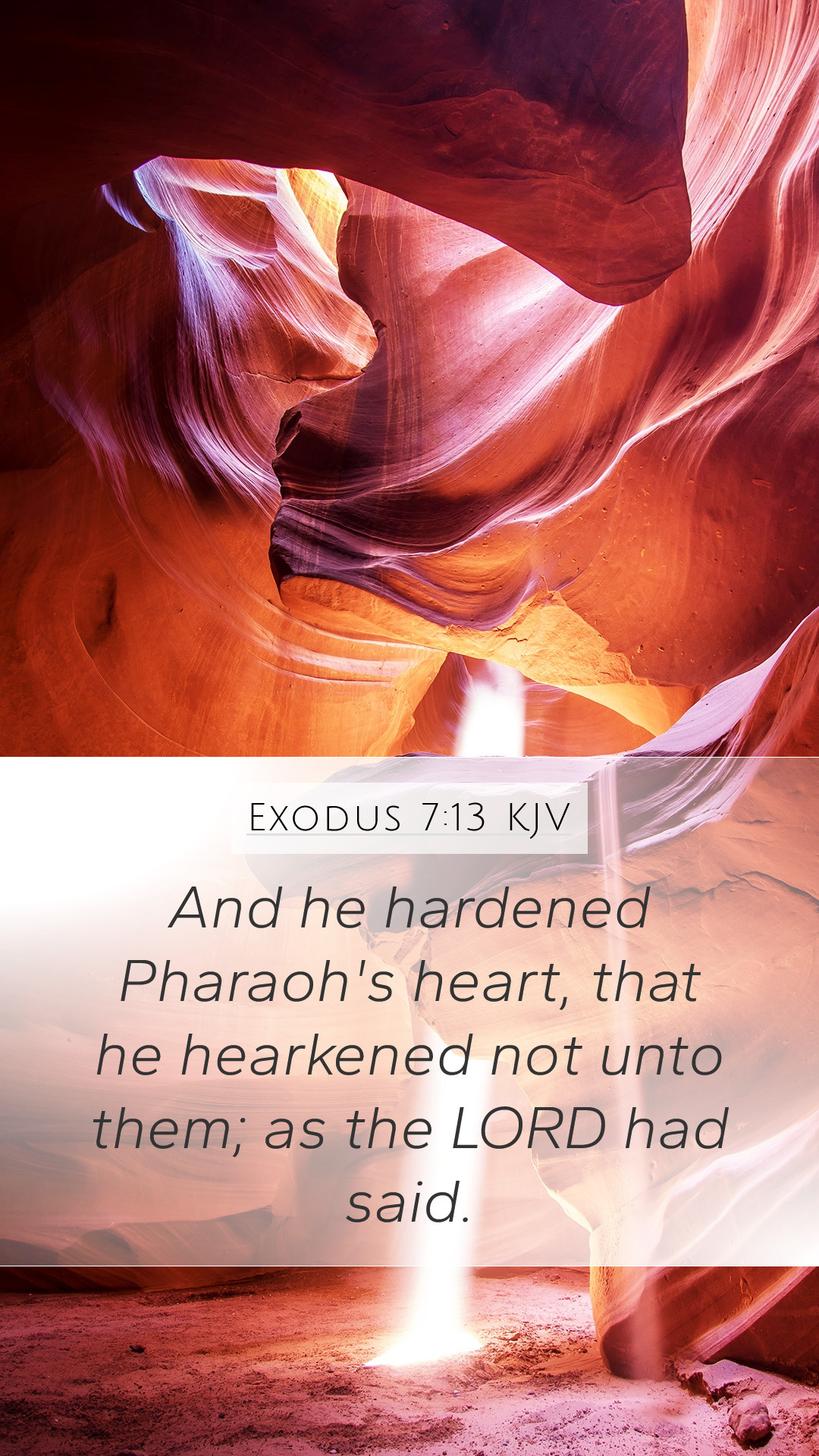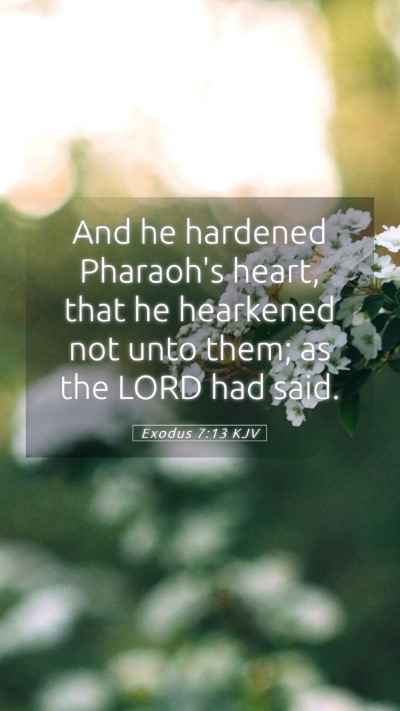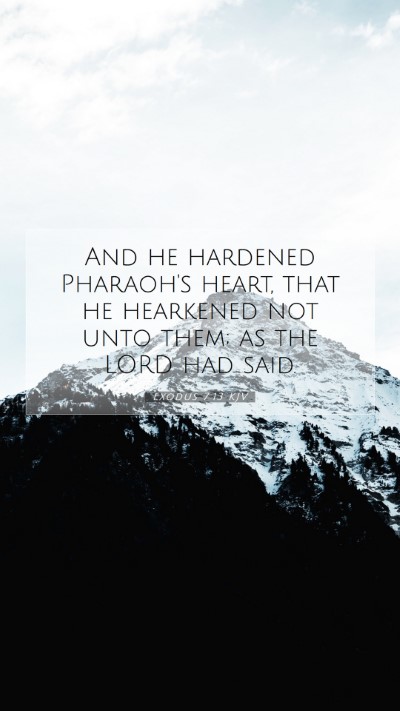Exodus 7:13 - Bible Verse Meaning and Commentary
Bible Verse: Exodus 7:13
Verse Context: This verse falls within the narrative of Moses and Aaron confronting Pharaoh as part of the ten plagues narrative in Egypt.
Summary of Exodus 7:13 Meaning
Exodus 7:13 states, "And Pharaoh’s heart was hardened, and he hearkened not unto them; as the Lord had said." This verse encapsulates the struggle between divine decree and human agency, setting the stage for the unfolding events in the Exodus story. The hardening of Pharaoh's heart signifies both a spiritual resistance and a deeper theological implication about God’s sovereignty and human free will.
Insights from Public Domain Commentaries
- Matthew Henry: Henry emphasizes that Pharaoh's hardened heart is an indication of God's judgment upon him. Pharaoh had already been resistant to God's commands, and the hardening reflects his obstinacy and unwillingness to heed divine warnings. The hardening serves to fulfill God's purpose in demonstrating His power through the subsequent plagues.
- Albert Barnes: Barnes discusses the nature of the hardening as not just a passive resistance, but an active suppression of truth. He notes that this hardening was part of God’s plan to display His might and glory to both Egypt and Israel, revealing the consequences of pride and arrogance against the divine will.
- Adam Clarke: Clarke highlights a connection with the nature of free will. He suggests that while Pharaoh’s heart was hardened, it was also a result of his own choices and character. Clarke points out that this serves as a warning against the dangers of persistent rebellion against God, suggesting that turning from God leads to further hardening and separation from divine will.
Theological Implications
The hardening of Pharaoh's heart raises essential questions regarding the interplay of divine sovereignty and human responsibility. It illustrates the concept that repeated rejection of God's message can lead to a state of hardheartedness, where the choice becomes increasingly difficult to turn back to God. This theme resonates throughout Scripture, emphasizing the need for obedience and humility before God.
Cross References
- Romans 9:17-18: Discusses God raising Pharaoh up to show His power.
- Exodus 4:21: God foretells the hardening of Pharaoh's heart.
- 1 Samuel 6:6: Reflects on the consequences of hardening one's heart against God.
Applications for Bible Study Groups
This verse and its commentary serve as rich material for Bible study groups and online Bible study platforms. Facilitators might explore the following:
- How does this verse influence our understanding of free will and divine control?
- In what ways can we apply the lesson of Pharaoh's hardening to our own lives?
- What can we learn about pride and humility from Pharaoh’s response to God's commands?
Conclusion
Exodus 7:13 represents a pivotal moment in the narrative of the Exodus, revealing significant truths about God's power and human choice. This verse invites readers to reflect on their own hearts and the potential hardness that comes from rejecting God's guidance. In the context of Bible study resources and materials, it provides an opportunity to delve deeper into understanding Scripture, encouraging both personal reflection and group discussions. The insights from Matthew Henry, Albert Barnes, and Adam Clarke offer a comprehensive view that aids in the understanding of Scripture, enriching one's spiritual journey.


